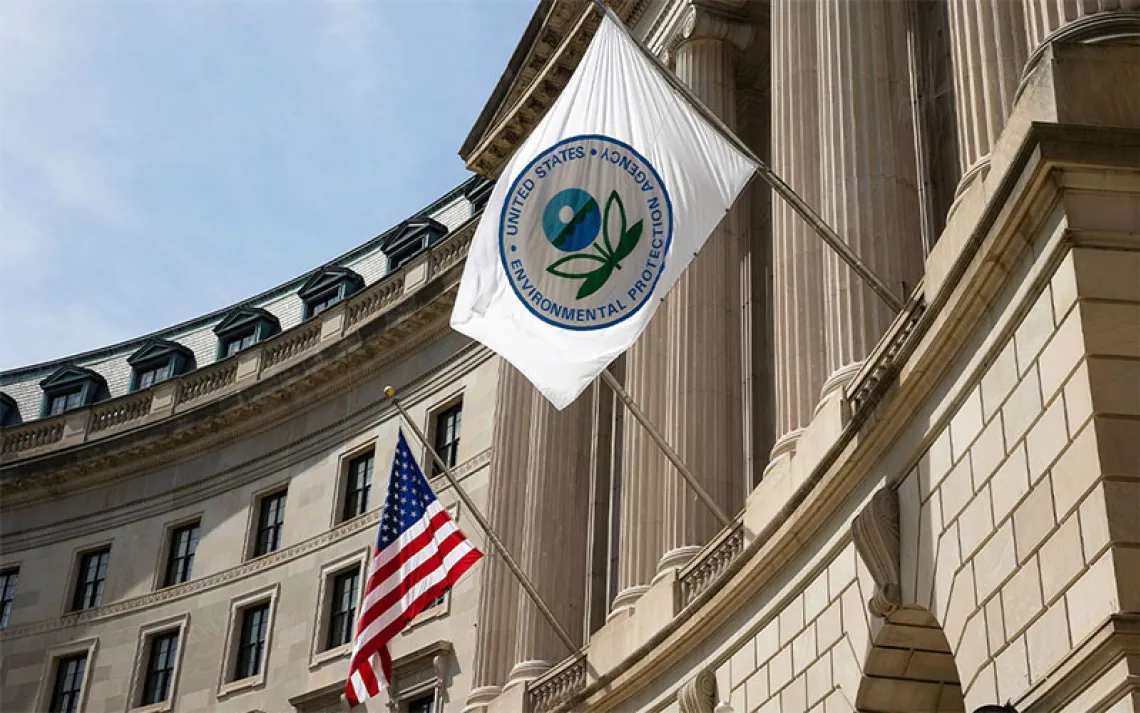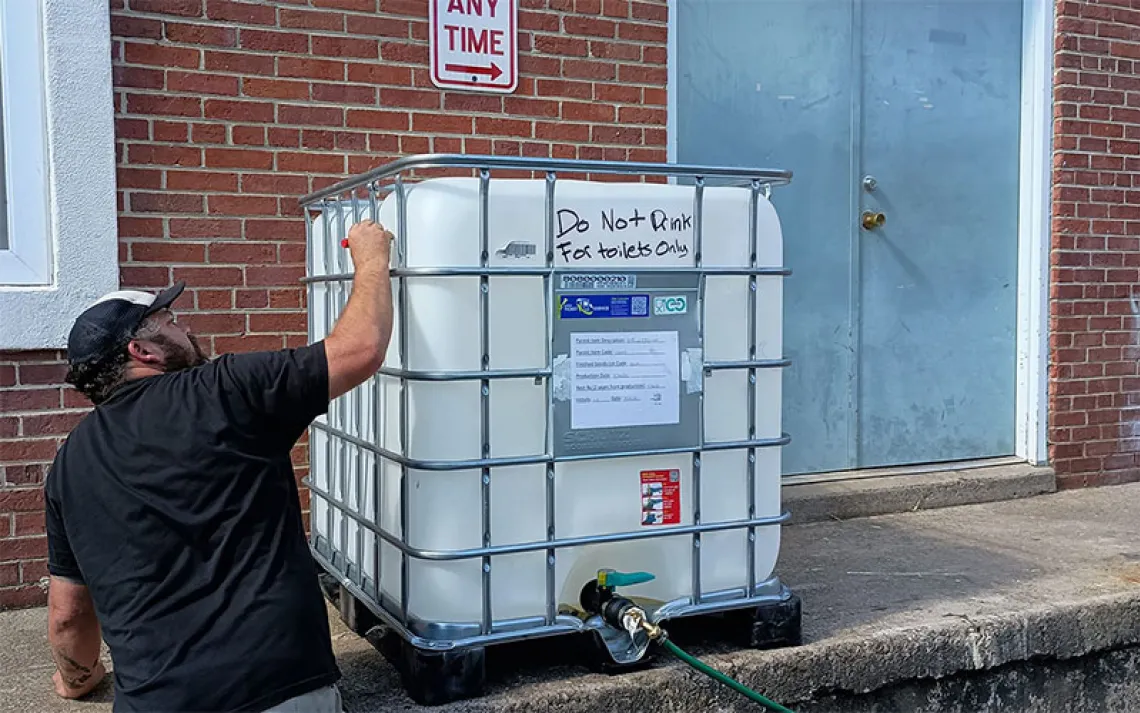Mitzi Jonelle Tan Pranks for Change
This youth activist from the Philippines wants Standard Chartered to stop financing fossil fuels

Mitzi Jonelle Tan | Photo courtesy of Youth Advocates for Climate Action Philippines
Last May, the British bank Standard Chartered made an exciting announcement: It would cease all corporate loans to coal companies by the end of 2021 and stop financing fossil fuel projects by 2023.
A virtual press conference followed. When viewers logged on, however, they were greeted not by bankers in business suits but by four young, ponytailed women sporting fake, digital mustaches. "At Standard Chartered, we believe money can be a force for pure evil," announced "CEO Billerina Summers." A bit later, "Chief Risk Officer Bark Smithers" explained that she'd fought hard to keep funding coal but had been thwarted by "rabbit-hugging, mung-bean-munching, meddling kids." She reassured viewers that she'd keep looking for new loopholes.
 Bianca Castro, Leonie Bremer, Mitzi Jonelle Tan, and Nicki Becker (from left) hold a fake press conference to call out Standard Chartered's policies on coal. | Photo courtesy of Youth Advocates for Climate Action Philippines
Bianca Castro, Leonie Bremer, Mitzi Jonelle Tan, and Nicki Becker (from left) hold a fake press conference to call out Standard Chartered's policies on coal. | Photo courtesy of Youth Advocates for Climate Action Philippines
After about 10 minutes of such theatrics, the women admitted, to the astonishment of no one, that they were not actually executives with Standard Chartered. It had all been a prank. The four—Bianca Castro from Portugal, Nicki Becker from Argentina, Leonie Bremer from Germany, and Mitzi Jonelle Tan from the Philippines—were activists with Fridays for Future, the global climate-strike movement inspired by Greta Thunberg.
They were targeting Standard Chartered because, despite a public commitment to the Paris Agreement, the bank had poured $10 billion into the coal industry between 2018 and 2020, a fact that the company's slick promotional videos and oft-touted slogan "Here for good" could not hide.
"The biggest prank of all really is how Standard Chartered claims to be 'here for good.' Their current policies are laughable," Tan (a.k.a. Bark Smithers) said in the video. "I'm sick of being afraid of drowning in my bedroom." At 23, Tan has experienced many scary typhoons. Over the past 40 years, the storms that pummel her country have grown stronger as a result of a warming ocean.
Tan grew up just outside Manila. At five, she was diagnosed with early-stage tuberculosis, and she underwent years of careful monitoring. She was prone to coughing fits and sensitive to smoke. She learned about climate change in elementary school, but the lesson was not much more than a list of random environmental ills: the ozone layer, pollution, global warming, cigarette smoke. In Tan's mind, the problems blended together and attached themselves to the state of her delicate, compromised lungs. From then on, seeing people smoke enraged her.
Eventually, Tan's lungs healed. But her moral outrage only deepened as she grew older. She got used to doing homework by candlelight while it stormed outside. In 2009, Typhoon Ketsana struck. When she and her family volunteered to distribute aid, she saw hungry survivors shoving one another in line, and for the first time she understood desperation.
By 2017, Tan was studying mathematics at the University of the Philippines and was a budding student rights activist. There, she met members of the Lumad Indigenous group who were fleeing persecution for defending their land from extractive industries. "We have no choice but to fight back," one of them told her. For Tan, something clicked: "I realized that he was right. It is that simple. We don't have a choice. This is our planet."
That conversation marked the beginning of Tan's environmental activism. She joined campus groups and helped organize the university's March for Science. In 2019, inspired by the global climate-strike movement, she and other activists formed Youth Advocates for Climate Action Philippines (YACAP), a coalition of Filipino youth organizations that aligns itself with Fridays for Future.
In September of that year, YACAP held a climate strike on campus. Seven hundred people gathered and, holding placards above their heads, formed a massive Earth. That November, the activists organized another strike at night in front of Manila's city hall, and participants held handmade lanterns. "Our climate strikes always have a friendly aspect—the lanterns, the Earth formation," Tan says. "We know the stigma that surrounds activism here."
Death threats crop up often in Tan's social media feeds. People tag the police with messages like "What terrorist group are you part of, Mitzi?" In March 2020, the Manila Times reported that a lieutenant general in the Filipino army had accused young female environmental activists of wearing short shorts and trying to entice young men to join the rebel army. Months later, when the typhoons arrived and Tan was organizing relief efforts, she was still receiving negative comments about her clothes, like "You don't deserve to help because you are wearing short shorts."
In early 2021, YACAP joined the global #CleanUpStandardChartered divestment campaign. Tan and her peers had learned how the bank was financing coal projects, especially in the Philippines and Indonesia. While the bank had agreed to no longer offer project loans, it was still funneling vast sums to coal companies through the loophole of unrestricted corporate loans. Since then, Tan has organized protests, published op-eds, crashed online shareholder meetings, generated tweetstorms, and helped pull off one epic prank. The video of the press conference stunt has over 100,000 views.
Nicole Rath, a fossil-free-finance campaigner with Urgewald, a German nonprofit that tracks coal financing across the energy industry, has worked with Tan on the divestment campaign. "We all know how dangerous activism in the Philippines can be," she says. "What astonishes me most is how bravely Tan just goes about it. She's not giving up."
That is to say, Tan and her activist pals around the world are truly here for good.
This article appeared in the Fall quarterly edition with the headline "Pranking for Change."
 The Magazine of The Sierra Club
The Magazine of The Sierra Club



